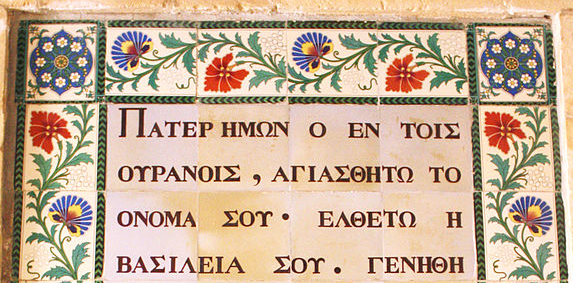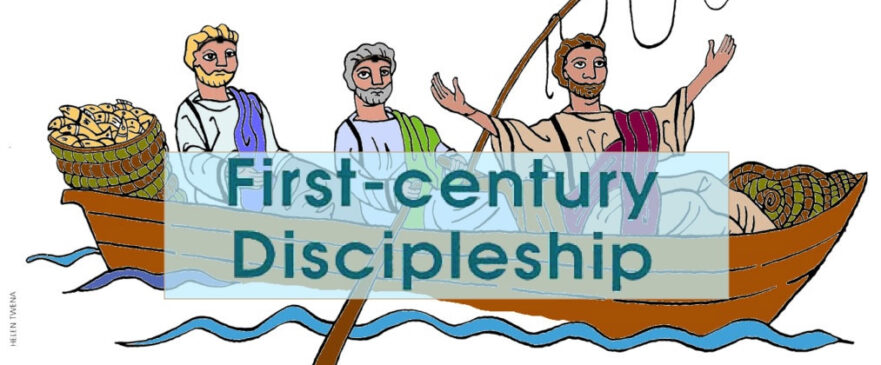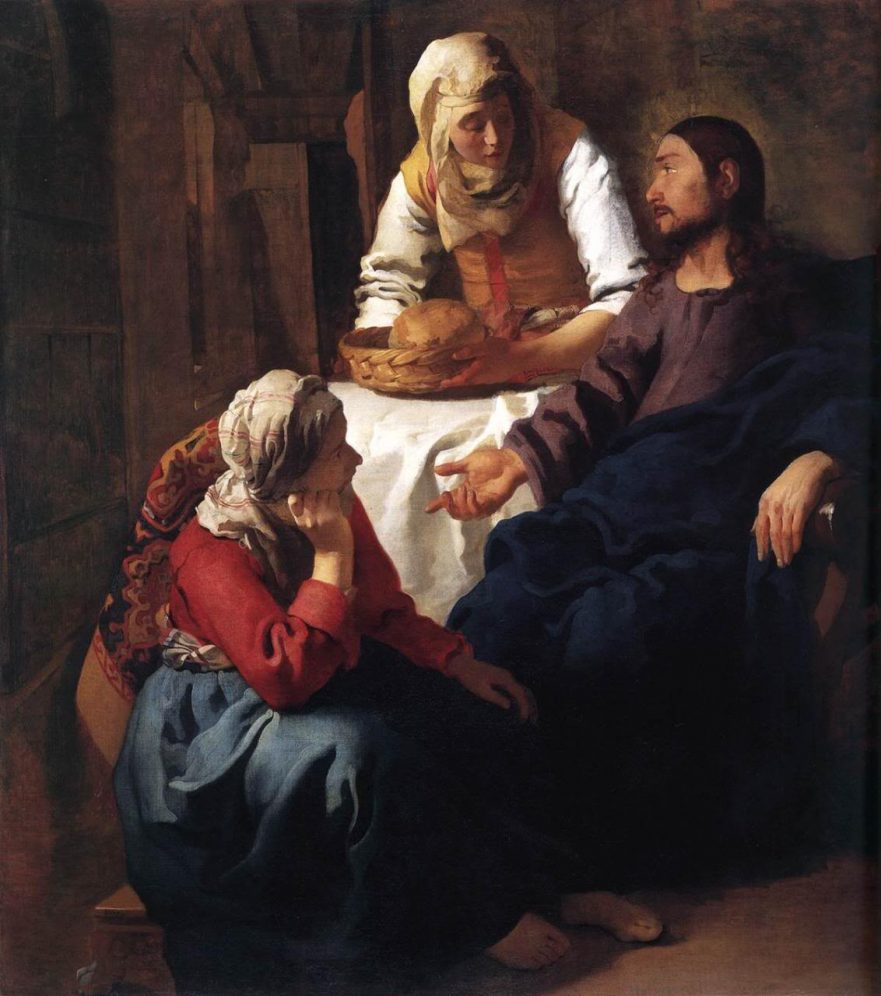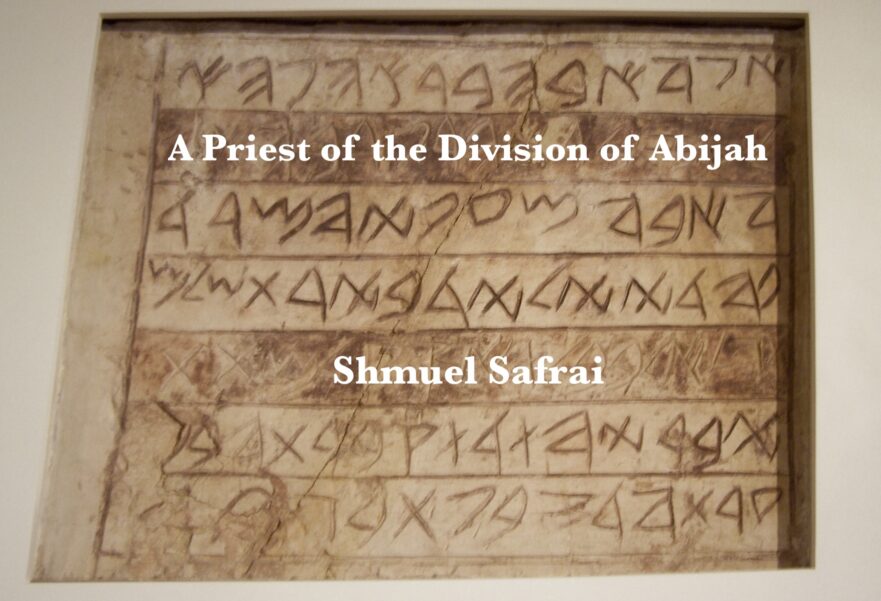The priestly division of Abijah was named after one of the priests who returned to the land of Israel with Zerubbabel and Jeshua (Nehemiah 12:4). This was the priestly division to which Zechariah, John the Baptist’s father, belonged.
The Lord’s Prayer 8: “Forgive Us Our Debts”

Forgiveness is one of the main emphases in Jesus’ teaching. It is no wonder, then, that forgiveness is part of the short prayer that Jesus taught his disciples.
Hebrew Nuggets, Lesson 15: Shalom (Part 1)

First of a two-part series on the well-known Hebrew word Shalom.
The Lord’s Prayer 7: “Give Us This Day Our Daily Bread”

The deceptively simple petition from Matthew 6:11, “Give us this day our daily bread,” has been a matter of controversy for centuries. The unusual Greek word epiousion, which is translated “daily,” is the root of the controversy. Some scholars have suggested that the original phrase contained the similar-sounding Greek word epeimi, (the next), and so meant “bread for the next day.” Nevertheless, the Latin translation of the New Testament understood the word as meaning bread needed for sustenance.
Jesus’ Education

One can form a reasonably accurate picture of what Jesus was doing in his childhood and adolescence.
The Lord’s Prayer 6: “Thy Will Be Done”

We noted in a previous article that “Thy will be done” parallels “Thy Kingdom come.” Both phrases mean, “May you continue establishing your Kingship.” Jesus does not instruct his disciples to pray “if it is your will.” It is within God’s purpose that all men should repent and become a part of God’s reign. “May your will be accomplished” is a strong affirmative appeal.
Hebrew Nuggets, Lesson 14: menorah (Part 3)

The third part of a three-part series on the word Menorah.
The Lord’s Prayer 5: “Thy Kingdom Come” (Part 2)

Like Jesus, the rabbis made frequent reference to “the Kingdom of Heaven.” A familiarity with the way “Kingdom of Heaven” is used in rabbinic literature is essential for understanding its use in the Gospels.
First-century Discipleship

Like other sages of his time, Jesus demanded his disciples’ total commitment. They were to put the “kingdom of Heaven” (Jesus’ band of full-time disciples) before all else. They were to “hate,” that is, put second, father, mother, wife, children, brothers, sisters, and themselves, as well (Luke 14:26). Following Jesus to learn Torah from him was to take precedence over every other endeavor.
The Lord’s Prayer 4: “Thy Kingdom Come” (Part 1)

Probably no other aspect of Jesus’ teaching has been so greatly misunderstood as the Kingdom of Heaven. Certainly, few themes are more essential for understanding Jesus.
Mary and Martha: The Rest of the Story

In Robert L. Lindsey’s theory of gospel transmission, the Hebrew version of Jesus’ biography and its Greek translation have both been lost. Although none of the synoptic Gospels preserves the original text in its entirety, together they do preserve all, or nearly all, of the stories in the original work.
Hebrew Nuggets, Lesson 12: menorah (Part 1)

Menorah is one of the many Hebrew words that have entered the English language.
The Lord’s Prayer 1: Introduction

Too often, the importance of the Jewish background of the prayer and of the language that Jesus used has been overlooked or minimized.
Sidebar: A Conjectured Process of Gospel Transmission Outlined by Robert Lindsey

The stages of transmission from the earliest Hebrew biography of Jesus to the canonical Gospels of Matthew, Mark and Luke.
The Lord’s Prayer 3: “Hallowed Be Thy Name”

How can the name of God be “hallowed”? Actually, the sense of the word might better be expressed in English by “sanctify.” The whole phrase could be translated, “May your name be sanctified.”
At the Feet of a Sage

Jewish sages and their disciples were dependent upon the hospitality of the communities they visited.

